Mid 2022, I went on an arts, comedy and entertainment podcast to test the viability of using pop culture to better explain the dangerous and threatening psychology of narcissists, sociopaths and psychopaths always trying to take over every relationship, family, group, organization and society.
Thankfully, by referencing iconic stories like Star Wars, Blade Runner and X-Men, “The people have spoken” by making the episode the most downloaded of the 100+ series. Even more rewarding, a few narcissistic abuse survivors shared they “loved” the episode, and it gave them comfort that others understood their struggles.
In pre-show production, the host Doug suggested discussing the psychology of Elon Musk. I relayed that despite Tesla being another Bay Area success story, I never paid much attention to him since foreigners and immigrants being welcomed to Silicon Valley and having huge tech success stories are commonplace, because if anyone has a good idea, California wants to hear it.
Therefore, all that entered my mind about Musk was that he seemed eccentric, and deserved credit for building up the first ever successful electric car and private rocket-ship companies; but I was definitely disappointed when he moved both headquarters from California to Texas in 2021.
I only began to question his psychology when he started trolling my state that created the environment that helped him be so successful. Moving for lower taxes and lax regulations was at least logically understandable, but unnecessarily trolling California while glowingly praising Republican run Texas was strategically unwise, with Tesla’s customer base being primarily liberal.
However, beyond the above, I only knew I didn’t know enough to give any useful psychological analysis of his mercurial behaviors; but ever since he put himself front and center by bidding for Twitter, I have been asking: Who is this Elon Musk character? Which psychological prisms decode his behaviors? Is he a force for good, an aspiring supervillain, or both?
One thing I can say for sure is no one I have tried to profile has ever been as slippery and elusive as Elon Musk.
Normally, after dissecting interviews, writings and biographic information, I can recognize at least a dozen behaviors and tells that do or do not align with a clinical personality disorder on the narcissism spectrum. Discovering where someone is on the spectrum can be an invaluable tool in making the subject’s future actions fairly predictable, because most unhealthy narcissists are pathological (having compulsive, maladaptive behaviors), so they usually won’t or can’t change, while non-pathological narcissists can change when motivated. However, for the first time, normally effective methods kept giving contradictory evidence, leaving more questions than answers.
The next process step was an unofficial poll requesting thoughts and questions from friends, experts and strangers. Primarily, responses help me consider POVs beyond my own. What instantly stood out was how many responded with visceral dislike. I had serious questions and concerns but not in the intense way of the majority I polled, which raised the questions: Why do so many react so viscerally to Elon? Why don’t I?
The simple answers to why many react viscerally to Elon is he has some very questionable sociological beliefs, likes to troll a little too much, and is often unaware, amused by, and/or doesn’t care when his words are hurtful, cruel, gaslighting or destructive. This is one of Elon’s great paradoxes. I believe he wants to inspire and excite humanity into a bright technological future, but then he consistently undermines his own science leadership, credibility and mission, with unnecessarily toxic, unscientific conspiracies.
I now know my personal lack of visceral reaction was three-fold:
Firstly, my vision was clouded by the name Tesla itself. From what I knew of Nikola Tesla, he was an intense and eccentric showman and genius, who ruffled a lot of feathers in science and industry, so the name “Tesla” in my mind meant an intense, eccentric, feather ruffling showman CEO, which cloaked Elon in Nikola Tesla’s genius.
Secondly, Elon and I are close in age and both grew up loving many of the same Science Fiction and Fantasy stories, so we have similar visions of the future. In fact, he often reveals many of his visionary concepts come from mutual favorites like Star Wars, Star Trek, Blade Runner, Foundation and Lord of the Rings. We don’t necessarily share the same conclusions, but the concepts behind his futuristic thoughts are very familiar.
Thirdly, my family has had some brilliant eccentrics, so I was conditioned to accept odd and obsessive behaviors in clever and creative people. Upon reflection, this conditioning has given me more familiarity, tolerance and understanding of many of Musk’s “odd” behaviors, hence my lack of visceral reaction to him. However, I still could not make sense of his continually gaslighting Tesla’s primary customer base.
The Prisms of Elon
Starting at the beginning, per Elon’s mother, his life began with her being physically and psychologically abused by his father on their wedding night, and it continued until the law allowed her to divorce him in 1979, when Elon was nine years old. However, she states he went back to live with his father at age ten for his father’s book collection, which seemed a curious reason to return to an abuser, unless he thought of abuse as normal. Elon has since said he regrets going to live with his “evil” father.
Psychologically, parental abuse is the main cause of unhealthy narcissism, so initially the #1 predictor was present in abundance, per Elon and his Mother. However, I soon discovered what made Elon’s psychology so elusive and complex, was a different prism needed to be put in proper context first.
Asperger’s
I forgot in 2021, Elon hosted Saturday Night Live and announced he had “Asperger’s,” which the DSM-5 folded into Autism Spectrum. He pointed out how he doesn’t make a lot of eye contact, and has little “variation” in the way he speaks, so he has to tell people when he is joking. Until that time, the only person I consciously knew of with Asperger’s was the highly impressive 2019 Time Person of the Year, environmental activist Greta Thunberg. Interestingly, Greta’s AS bluntness and Swedish openness can make her tweets very spicy too, but she is never trolling. She’s either calling out a lack of action, educating or troll demolishing.
The reaction to Elon’s announcement provoked mixed feelings. Some credited him for being a role model like Greta while others doubted he had Aspergers, or was using it as an excuse to justify questionable behavior. His detractors declared most people on the autism spectrum are very honest, fair, protective, rule-oriented and have a strong moral sense of justice, so attempts by Musk to use Asperger’s to justify his snarky trolling seemed misguided at best. Autistic writer Sara Luterman went so far as to call it, “a poor attempt at laundering his image as a heartless billionaire.”
Upon further reflection, it became clear Asperger’s was why I struggled to read Elon. As I occasionally observed some autistic rigidity overpower his father’s narcissistic grooming in positive ways, it was these moments of honesty, insight and humility that caused me to keep rejecting any easy clinical narcissism conflations or conclusions.
However, the more I studied him, the more I realized few if any have considered the interplay between the building blocks of his unhealthy narcissism (childhood traumas) and Autism Spectrum. Ergo, no psychological profile of someone “on the spectrum” can be close to accurate without integrating how dark pathologies can be disguised by AS qualities.
What was familiar though was I grew up with several “techies” who were bookish, brilliant minds whose brains just worked differently. Like Elon, many struggled reading social cues and never seemed wired for neurotypical social skills. They were offbeat but usually very nice if they knew you as a friend. In hindsight, clearly some were on the autism spectrum.
So when you account for his autistic challenges and differences, you realize Elon misreading neurotypical social cues, humor, emotions or feelings is normal. Other common autistic traits Elon regularly displays are laughing nervously and randomly. Every AS case is unique but Elon clearly views the world with a more analytical than empathic lens, which serves him well in design, engineering and production, socially, not so much.
Notably, a main reason some on the autism spectrum are savants in scientific subjects is due to an almost superhuman level of focus and energy in areas of interest. As biographer Walter Isaacson said of Elon, "He's able to sequentially focus in a way that I almost find like he's half-Vulcan.” Half-Vulcan, Mr. Spock was also how we used to describe some techie kids.
Once you understand what to look for, it becomes apparent how his AS interplays with his other psychological prisms in negative and positive ways, such as offbeat responses sometimes negatively influencing how he is perceived. Many believe he is cold and unemotional, but as far as his body language, monotone vocals, struggles with social cues, untimely laughter and limited facial reactions are concerned, that’s Autism Spectrum. As for the true meanings of his dystopian thoughts, words and actions, we must examine several negative prisms that decode who and what groomed him.
Well intelligence seekers, that was Part 1. Asperger’s was the missing link that needed to be fully processed before being able to clearly distinguish between Elon’s normal neurodivergent behaviors and the dark psychological prisms that really drive him.
The Grooming of Elon Musk: Part II
The reason for a small $5 charge for Parts 2-4 is several months were spent checking and cross-checking facts and studying the behaviors of several other key figures in Elon’s story, to meet the highest standards of accurate or the most likely information.
The more financial support you can give CNI, the more you are helping provide resources to counter narcissists with, and in particular this kind of time-consuming deeper analysis. Of course free subscriptions, likes and shares are very helpful too.
Hopefully you are thinking, “I need to know the full four-part epic story behind Elon’s obvious antisocial behaviors we see manifesting more every day, it is a no-brainer to support causes like Counter-Narcissist Intelligence because the world is in desperate need of it, and $5 is a small price to pay for such a worthy cause.”
Of course, the $60 year and $250 founding subscriptions are extremely helpful. However, if $5 or more isn’t pocket change at the moment, please write me and I will review granting free access.
Sam Ray © 2023-25
This assessment seven months after the four-part profile also aged exceptionally well.




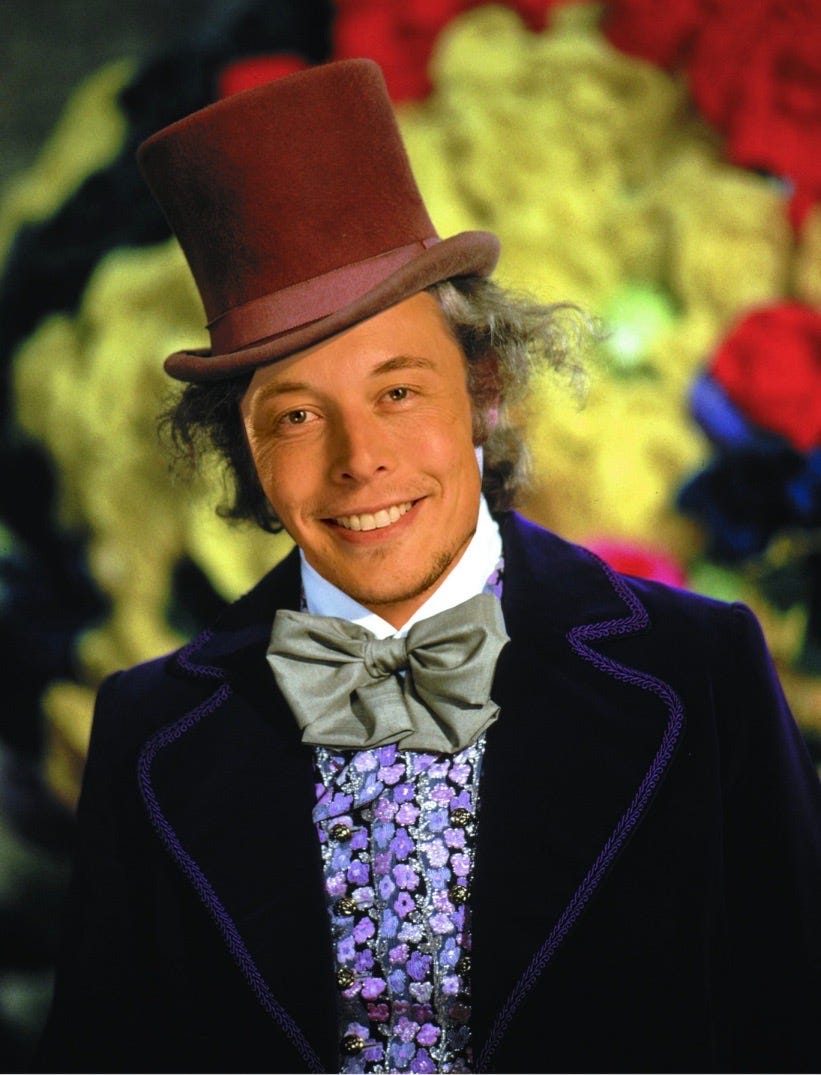
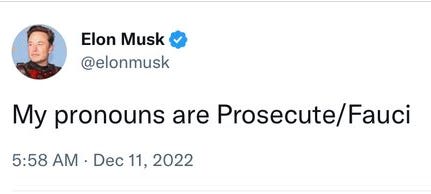
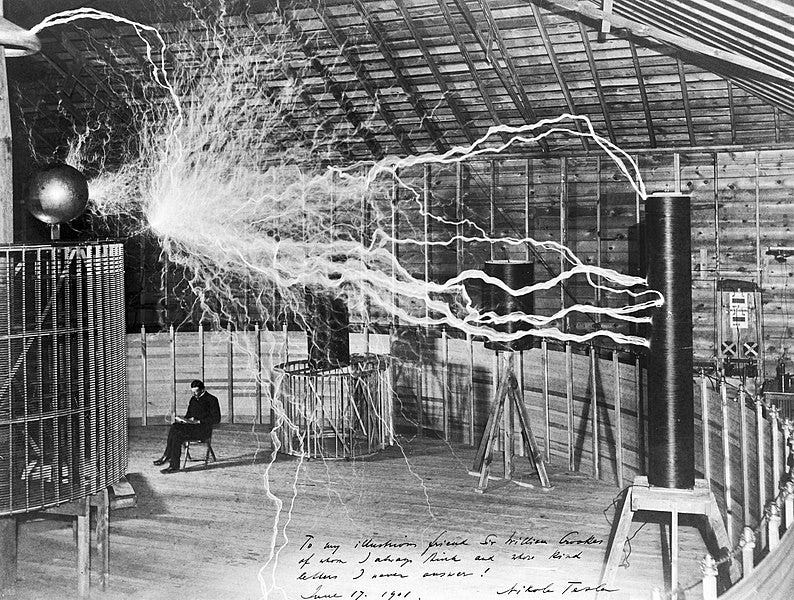
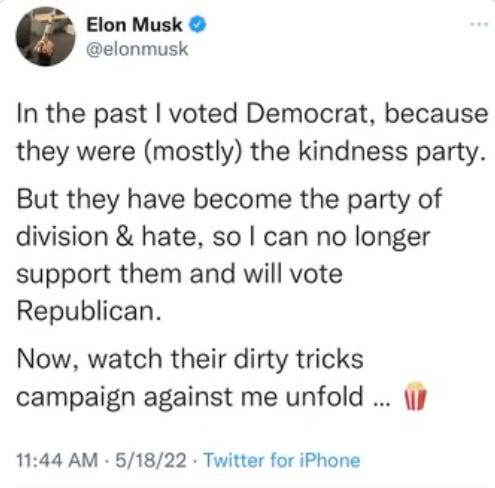
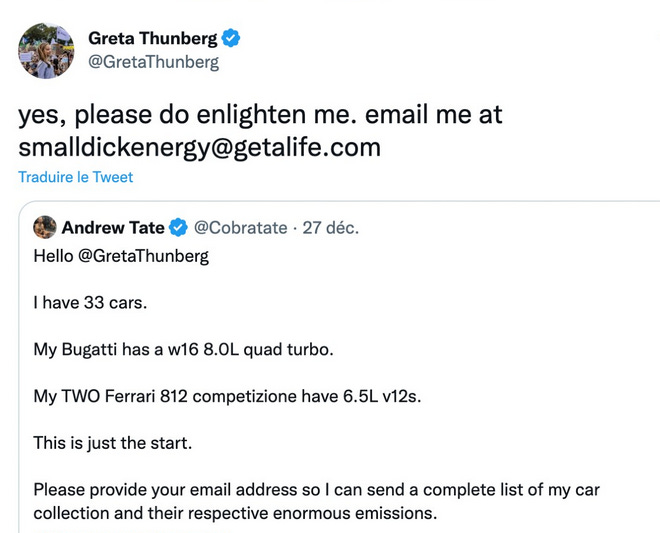

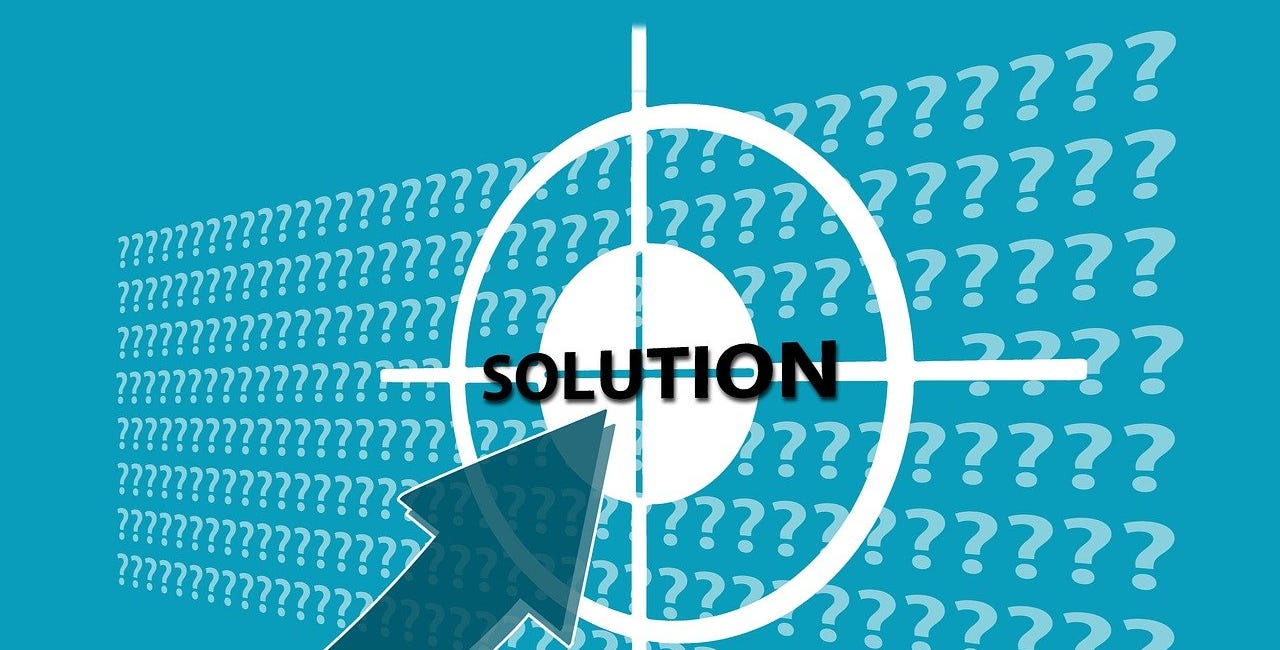
"Thank You. I read with interest. I worked with many children on the spectrum during a long career, some much more severely impacted than others. None took pleasure in hurting others. When it was explained to them that they had, they were sorry. Elon is both complex and unpleasant." - @AnnMB48 - 3/30/23
"This is so cool! We need more thoughtful analysis of "mentally challenged" leaders. The article looks great." - S.H.